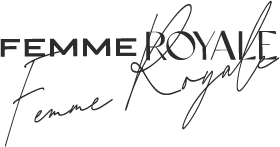the difference between egg labels [+ why it matters!]
ever wondered about all the different labels we see on our eggs? well if not, be sure to check them out because they matter. these terms are used to describe different types of eggs in reference to the living conditions and treatment of the hens that lay them.
here's a quick explanation of some common types of eggs:
conventional eggs: conventional eggs come from hens that are typically raised in battery cages, which are small wire enclosures that house multiple birds. these cages often have limited space for movement and don't allow the hens to exhibit their natural behaviors.
cage-free eggs: cage-free eggs come from hens that are not confined to battery cages. however, they may still [read: almost always] be housed indoors in large barns or warehouses. while they have more freedom to move, they may not have access to the outdoors.
free-range eggs: free-range eggs come from hens that have access to the outdoors for at least part of the day. they are typically housed in barns or warehouses but have the option to go outside. the outdoor area may be [read: is typically] limited, and the specific requirements for the amount of outdoor space can vary by country or certification standards.
pasture-raised eggs: pasture-raised eggs come from hens that spend a significant amount of their time outdoors, with ample access to pasture and foraging opportunities. these hens have more space to roam, explore, and engage in natural behaviors like scratching the ground and pecking at insects.
organic eggs: organic eggs come from hens that are raised according to specific organic standards. these standards generally require that the hens have access to the outdoors and are fed an organic diet free from synthetic pesticides, herbicides, and genetically modified organisms (GMOs). organic certification also requires the avoidance of antibiotics and hormones.
so it’s pretty clear that as the list goes on the options get better. but! we also acknowledge that not all of these options are available to everyone. so, essentially get as far down the list as possible that works for you. if you’re able to buy eggs locally, from a farmer’s market, or a friend who has chickens, that’s great! if not, don’t stress. personally, I buy my eggs from Whole Foods because they sell my favorite brand of eggs—Vital Farms Pasture-Raised. their yolks are always so rich in color. but if you can’t find organic in your area, or pasture-raised eggs at your grocery store, that’s ok too! just work your way up the list until you’re able to find what works for you. as you may have guessed, as you go down the list, the eggs can get more expensive. we recognize this as a barrier to get “better” eggs but we encourage everyone to just be mindful of where your eggs come from.
*it's important to note that the specific definitions and regulations for these terms can vary by country and certification organizations. different labels may have different criteria and requirements. when purchasing eggs, it's advisable to look for certifications or labels from recognized organizations that provide meaningful standards and auditing processes to ensure the claims are verified.

